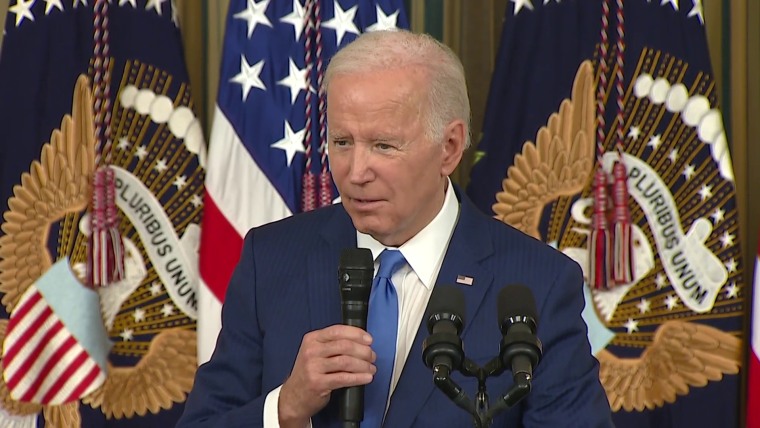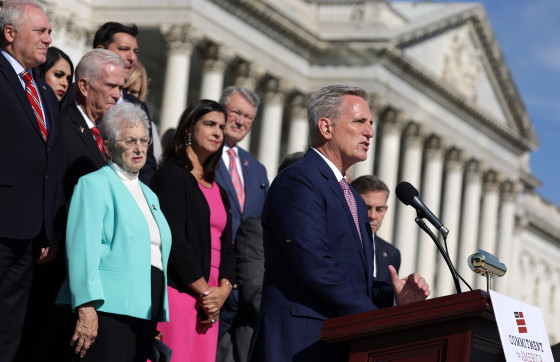It’s cold comfort to be wrong in good company. But wrong I was. Democrats may yet lose control of the House of Representatives, albeit by the smallest of margins, and there are two races left to call and a runoff to hold before we know which way the Senate goes. But that doesn’t change the fact that Democrats beat the odds. Despite Joe Biden’s unpopularity, widespread economic hardship and polling that indicated a reasonably uniform GOP advantage, Republicans fumbled enough winnable races Tuesday that no one could call it a “red wave.”
Of course, given the zero-sum nature of elections, you could just as easily say Democrats “won” the 2022 midterms. Or, at least, more than held their own. But a deeper dive into the polling suggests Democrats won, to the extent they did, because Republicans lost.
The voters’ verdict becomes even clearer when you dig into how various demographics broke in the election.
The voters’ verdict becomes even clearer when you dig into how various demographics broke in the election.
A comprehensive NBC News analysis found that voters who “somewhat” disapproved of Biden’s performance in office broke for Democrats by 4 points and most likely made the difference in many closely contested races. What turned these voters’ stomachs were, according to GOP strategist David Kanevsky, the “candidates made in Donald Trump’s image,” not “non-Trump/less-Trumpy Republicans.” These voters may have split their tickets in races in which the ballots featured both Republicans with some convincing claim to normalcy and the unctuous neophytes who owed their nominations to Trump’s endorsement.
The voters’ verdict becomes even clearer when you dig into how various demographics broke. A Wall Street Journal analysis found that Republicans chipped away at the Democratic coalition in potentially seismic ways. African American voters shifted in the GOP’s direction by 15 percentage points; among Black voters under 44, the pro-Republican shift was a remarkable 22 points. Hispanics moved rightward to the tune of 10 points overall and 18 points among Latinos under 44. White suburban women, who fueled the Democratic resurgence in 2018 and delivered the presidency for Biden in 2020, voted Republican this year by 7 points.

These numbers help us understand why Tuesday’s results came as such a shock and why the toxicity of Trump’s candidates wasn’t necessarily reflected in, say, generic ballot polls. It was a special kind of Republican who proved unacceptable even in this GOP-friendly environment. Voters split their tickets in Ohio, New Hampshire, Georgia and elsewhere to reward Republican candidates with some convincing claim to conventionality while rejecting many of Trump’s hand-picked mimics. Voters turned in a similar performance in 2020, when the Republican Party’s down-ballot candidates outperformed the top of the ticket and the head of their party.
Voters have spent the last three election cycles sending Republicans the clearest signal in the history of signals. It takes work and dedication to miss the point, though Republicans seem perfectly capable of doing so.
Voters have spent the last three election cycles sending Republicans the clearest signal in the history of signals.
But they’re not alone. Democrats misread the 2020 election as a popular mandate to remake the American compact. The president and his party dined out on a heady diet of commentary in which liberal partisans wondered whether a narrowly elected president whose party had a mere five-seat majority in the House and a 50-50 Senate could achieve FDR-level feats. They didn't understand the country, did too much too soon and fomented a backlash that materialized in more elections than it didn’t right up until Tuesday.
Maybe it’s early exuberance, but Biden doesn’t seem to have been disabused of the notion that he’s a transformative figure. In a triumphant post-election news conference Wednesday, even as he offered some rote recognition of the issues set that has led roughly 7 in 10 Americans to say the country is on the wrong track, the president would brook no criticism. Asked what, if anything, he intends to do differently in the rest of his first term, Biden replied without hesitation: “Nothing.” Why? Because the public is only now “just finding out what we’re doing” and “the more they know about what we’re doing, the more support there is.”

If Republicans seem committed to ignoring the message from voters these last six years, Biden’s news conference suggests he is similarly inclined. If the GOP ends up in control of one or both chambers of Congress, the legislative phase of the Biden presidency is over. That would limit the Democratic Party’s capacity to overreach. But the presidency is a powerful tool. If Biden looks at the demographic breakdown of the 2022 vote and sees only an affirmation of how Democrats have governed, the drift of some core Democratic constituencies away from the fold will continue.
There’s no guarantee that the GOP will internalize the message the electorate has been sending it just yet. There are plenty of indications, in fact, that it is going to go on losing general elections for fear of antagonizing the voters who like losing candidates. But we’re deep into yet another cycle of anti-Trump recriminations. This time, in Florida Gov. Ron DeSantis, there is a distinct competing power center that very well could dislodge Trump from his position of primacy. Biden, by contrast, isn’t going anywhere. He defied the expectations set by decades of political precedent and earned his party’s deference.
Eventually, though, Republicans will learn the lessons voters have been trying to teach them. By contrast, the president seems to believe this election cycle has nothing to teach his party other than that it should keep doing exactly what it has been doing. If that’s the dynamic in two years, it would benefit Republicans. But so long as the GOP remains shackled to churlish buffoons and paranoid kooks, and only because it annoys the right people, Democrats can expect to keep winning default judgments at the ballot box.

